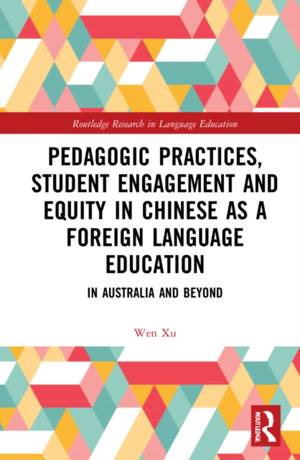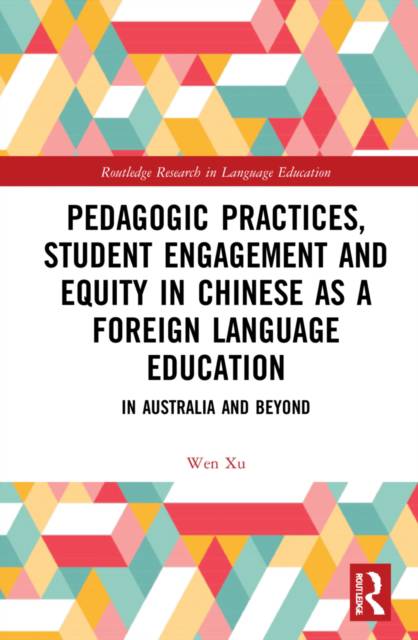
- Retrait gratuit dans votre magasin Club
- 7.000.000 titres dans notre catalogue
- Payer en toute sécurité
- Toujours un magasin près de chez vous
- Retrait gratuit dans votre magasin Club
- 7.000.0000 titres dans notre catalogue
- Payer en toute sécurité
- Toujours un magasin près de chez vous
Pedagogic Practices, Student Engagement and Equity in Chinese as a Foreign Language Education
In Australia and Beyond
Wen XuDescription
This book explores and analyses Chinese as a Foreign Language (CFL) pedagogic practices and learning experiences within a cohort of low socio-economic status students within an Australian primary classroom. It demonstrates that, in spite of policy and educational discourses underpinning 'Asian literacies', Chinese teaching and learning is a fragile undertaking in Australian schooling. The politicisation of CFL education, especially in the post COVID-19 era, has exacerbated public stereotypes concerning racism and multiculturalism in Australia today.
Drawing upon Bernstein's theorisation and engagement framework, Wen Xu sketches out CFL education as a democratic space where power and control relations can be deliberately operated to reinforce engaging learning experiences. She suggests that pedagogic interventions in the name of social justice have the potential to make consequential differences in disadvantaged students' life trajectories, and CFL education can be envisioned as an avenue towards socioeconomic mobility instead of being criticised as a platform opposing to liberal ideas. In turn, she provides insights into teaching younger age CFL learners in the global context, in terms of the structuring of pedagogy and curriculum.
Wen Xu's research will be of interest to students and scholars in sociology of education, student engagement, pedagogy and curriculum, CFL education and languages education, as well as pre-service teachers and practitioners who teach Chinese as a Foreign Language.
Spécifications
Parties prenantes
- Auteur(s) :
- Editeur:
Contenu
- Nombre de pages :
- 192
- Langue:
- Anglais
- Collection :
Caractéristiques
- EAN:
- 9781032155852
- Date de parution :
- 28-12-21
- Format:
- Livre relié
- Format numérique:
- Genaaid
- Dimensions :
- 156 mm x 234 mm
- Poids :
- 462 g

Les avis
Nous publions uniquement les avis qui respectent les conditions requises. Consultez nos conditions pour les avis.






